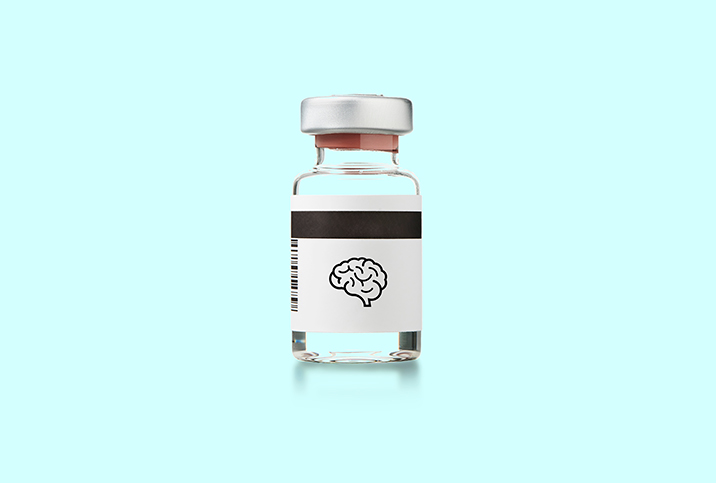Improve Brain Health With Memory Enhancement Strategies

Problems with memory become more frequent as you age, ranging from laughable "senior moments" to devastating dementia. One in 3 people older than age 80 experience lapses in memory.
Changes in the brain that lead to dementia begin years, even decades, before symptoms show. This means implementing healthy lifestyle habits and memory enhancement strategies earlier can have positive effects on your brain later, even much later. The risk of dementia is lowest in people who, during middle age:
- Eat a healthy diet
- Are active and engaged mentally, physically and socially
- Drink minimal to moderate alcohol
- Do not smoke
Feeding your brain
The aptly named MIND diet stands for Mediterranean-DASH Intervention for Neurodegenerative Delay. It combines the best of the Mediterranean diet with the DASH, or Dietary Approaches to Stop Hypertension, diet.
Following the MIND diet, which was designed specifically to promote brain health and decrease the risk of dementia, is a great memory enhancement strategy. It has been shown to decrease the risk for Alzheimer's disease by more than 50 percent if followed carefully (and 35 percent if followed moderately well).
It is still unclear how certain foods affect brain health, but three theories are:
- They decrease inflammation and oxidative stress, two pathways that appear to increase the risk of Alzheimer's and dementia.
- They decrease metabolic disorders such as diabetes, high blood pressure and obesity, all risk factors for dementia.
- They improve the gut microbiome, which seems to have an influence over many pathways in the body, including in the brain.
The MIND diet benefits the brain and is good for the whole body. For example, research published in September 2020 indicated it is associated with a decreased risk of breast cancer.
The MIND diet has daily and weekly guidelines for just 15 foods in two categories. The first category is healthy foods:
- Beans: Three servings per week
- Poultry: Twice per week
- Fish: Once per week
- Green, leafy vegetables: Six or more servings per week
- All other vegetables: One or more servings per day
- Whole grains: Three or more servings per day
- Nuts: Five servings per week
- Berries: Two or more servings per week
- Olive oil: Daily servings
- Wine: Up to one glass per day
The second category is unhealthy foods:
- Butter or margarine: Less than one tablespoon per day
- Sweets: Fewer than five servings per week
- Red meat: Fewer than four servings per week
- Cheese: Less than one serving per week
- Fast food or fried food: Less than one serving per week
Don't forget the strawberries
"Brain health is an ever-growing area of research, and the evidence for including certain foods to help continues to mount," said Marisa Moore, M.B.A., a registered dietitian nutritionist in Georgia. "Fatty fish such as salmon and sardines are rich in omega-3s, a major building block of the brain. Omega-3s may play a role in boosting memory and improving mood while protecting and reducing potential cognitive decline.
"Leafy greens are packed with nutrients linked to better brain health, including folate, vitamin E and a variety of carotenoids and flavonoids," she added, recommending people "toss nuts and seeds into their salads for crunch. They are packed with fat-soluble vitamin E, which might have brain-protective qualities."
Moore particularly praised strawberries.
"With three grams of fiber per cup, strawberries are a good pick," she noted. "They are also packed with beneficial nutrients including potassium, folate and vitamin C."
Eating strawberries may help support brain health, too.
"In a [2019] study of women 70 and older, eating at least two servings of strawberries per week was associated with slower rates of cognitive decline," Moore explained. "Strawberry consumption appeared to delay cognitive aging by up to two and a half years. The Memory and Aging Project found that strawberry intake was associated with a 34 percent reduced risk of Alzheimer's dementia compared to those who didn't or rarely ate strawberries. Researchers believe these results are likely due to a specific anthocyanin found in strawberries called pelargonidin."
Mind, body and heart
Brains like to be active and part of active bodies, too. Brain health depends on people remaining mentally, physically and socially engaged throughout their lives.
Health experts recommend adults get 150 minutes of moderate physical activity a week. Increasing your heart rate through exercise bathes the brain in oxygen and other nutrients vital to brain function. Exercise also increases brain-derived neurotrophic factor (BDNF), which increases the formation of synaptic connections in the brain that are needed for learning new things and forming long-term memories. The more BDNF you produce, the better your learning and memory will be.
Nishant Kasibhatla, a memory and peak performance expert in Singapore, describes himself as a mindset mastery expert. Kasibhatla is in the Guinness World Records book for his memorization performance and has dozens of videos on YouTube showing viewers how to improve their recall skills as well.
"Being able to memorize is a skill, and age is never a deterrent to learning any skill," Kasibhatla said. "If you are willing to take action and exercise your memory, you can improve your memory at any age. An exception could be if one is diagnosed with mental degenerative diseases.
"Making a point to actively recall information is probably the best habit to boost your attention and memory, no matter your age," Kasibhatla continued. He offered these techniques:
- After you learn something, make a point to spend a few minutes recalling what you learned.
- After reading an article, recall the main points. (Try it with this article.)
- After watching a video, recall the key ideas.
- After attending a meeting, recall the main themes discussed.
- After learning a person's name, use the name in the conversation.
Kasibhatla said the secret to improving your memory is twofold: At the time of learning (input), pay 100 percent attention to the information. After learning, begin a habit of periodically recalling (output) what you learned.
"For better memory, focus more on the output than the input," Kasibhatla advised.
While his advice primarily concerned remembering information, writing a journal or using conversation to recall how a day or a vacation was spent, for example, are memory enhancement strategies that can help you store memories to remember years from now.


















